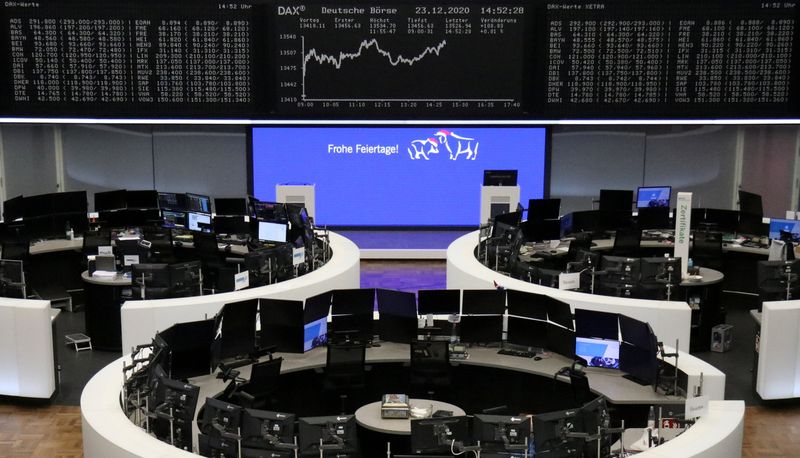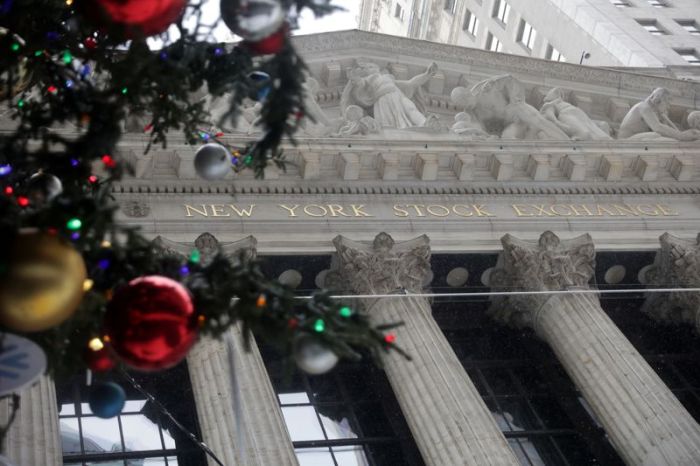(Reuters) – European shares rose for a third straight session on Thursday with a Brexit trade deal finally in sight just a week before Britain cuts its ties with the European Union.
London mid-caps jumped 1.2% to end a holiday shortened session at their highest since February, while the FTSE 100’s gains were limited by a stronger pound weighing on the exporter-heavy index. [.L]
Brexit-sensitive banks led the pan-European STOXX 600 index 0.2% higher to make up losses from earlier in the week when a new fast-spreading variant of the coronavirus spooked markets. [GBP/]
After months of wrangling, and amid warnings of no deal, Britain and the European Union were on the cusp of striking a narrow trade agreement, sources in London and Brussels said, swerving away from an acrimonious split five years after the Brexit referendum.
Talks could still have “some hours to run”, a UK source said on Thursday, adding that the two sides were still haggling over the EU’s right to fish in British waters.
“Everyone’s very curious to see what ultimately will be decided on,” said Bert Colijn, senior economist, eurozone at ING, adding that the big theme was if tariffs were off the table – seen as crucial to limiting the impact on European exporters.
“If you look at it in the very long run… finding a deal at the 11th hour is going to be positive from a growth potential side for the UK economy, and therefore, ultimately… to stocks.”
Banks jumped 0.7% with Britain’s Lloyds and Barclays up 4.0% and 1.8%, respectively.
Irish stocks closed down 0.3% with Flutter Entertainment falling 2.2%, making the travel and leisure sector the biggest decliner in Europe.
France’s CAC 40 closed down 0.1%, while Spain’s lender-heavy index climbed half a percent.
Stock markets in Germany, Italy and Switzerland were closed for the Christmas holidays.
Unprecedented amounts of stimulus, and lately vaccine optimism, have seen the STOXX 600 rise close to 50% from its March lows, though it still remains about 9% below this year’s pre-pandemic high and is on course to end the year about 5% lower.
Banks and oil stocks have weighed the most on worries about the economic toll of the pandemic, while technology stocks have led the recovery among major sectors as they emerged winners amid the work-from-home trend.
(Reporting by Susan Mathew in Bengaluru; editing by Uttaresh.V, Subhranshu Sahu, Kirsten Donovan)
























